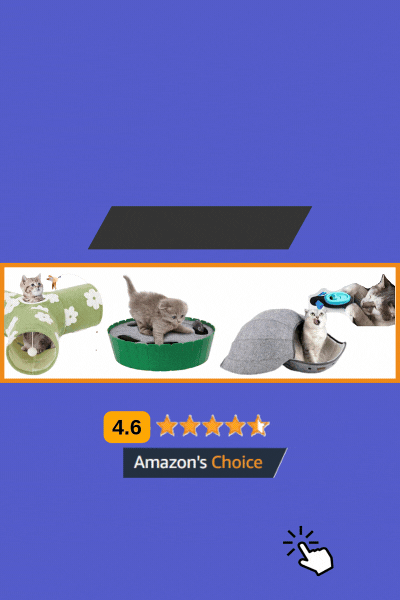Cats won’t stay young forever.
They age faster than humans do. Tt is a problematic fact to digest.
With aging, their health deteriorates, their metabolism reduces and their underlying weaknesses become more pronounced.
Hence it is very important to pay more attention to the elderly cats.
Frequent visits to the vet, health supplements, etc., are few of the things that should be followed diligently.
We bring to you a collection of 15 common problems that every aged cat will face
1. Arthritis – Stiff Joints, Slow Movements
As cats age, their joints wear down, leading to pain and reduced mobility.
Symptoms: Limping, reluctance to jump, stiffness, sleeping more.
Early Signs: Slower movements, minor hesitation before climbing stairs or furniture.
Vet Advice: Joint supplements, weight management, heated beds, and pain relief medication can help.
2. Kidney Disease – Excessive Thirst & Urination
Aging kidneys struggle to filter waste, leading to dehydration and organ stress.
Symptoms: Increased drinking, frequent urination, weight loss, bad breath.
Early Signs: Visiting the water bowl more often, occasional accidents outside the litter box.
Vet Advice: Blood tests, a kidney-friendly diet, and fluid therapy can slow progression.
See Also:
3. Hyperthyroidism – Weight Loss Despite Eating More
An overactive thyroid speeds up metabolism, causing rapid weight loss.
Symptoms: Increased appetite, weight loss, hyperactivity, vomiting.
Early Signs: Slight weight loss, more meowing, and increased energy.
Vet Advice: Bloodwork to diagnose, followed by medication, special diets, or iodine therapy.
4. Dental Disease – Bad Breath & Difficulty Eating
Tooth decay and gum infections can make eating painful and lead to infections.
Symptoms: Bad breath, drooling, pawing at the mouth, loss of appetite.
Early Signs: Preference for soft food, chewing on one side, or avoiding dry kibble.
Vet Advice: Dental cleanings, tooth extractions if needed, and dental-friendly diets.
5. Cognitive Dysfunction (Feline Dementia) – Confusion & Restlessness
Aging affects a cat’s brain, causing disorientation and behavior changes.
Symptoms: Pacing at night, excessive meowing, forgetting litter box habits.
Early Signs: Getting stuck in corners, staring at walls, or appearing lost.
Vet Advice: Supplements, a structured routine, and mental stimulation can help.
6. Urinary Tract Infections (UTIs) – Painful Peeing & Litter Box Avoidance
Bladder infections are more common in older cats and can be painful.
Symptoms: Straining to urinate, crying out in pain, blood in urine.
Early Signs: Frequent trips to the litter box, licking the genital area more than usual.
Vet Advice: Urinalysis, antibiotics, and urinary-support diets may be needed.
7. Vision Loss – Cloudy Eyes & Clumsiness
Cataracts or retinal diseases can lead to partial or complete blindness.
Symptoms: Cloudy eyes, bumping into furniture, dilated pupils.
Early Signs: Hesitation when jumping, misjudging distances.
Vet Advice: Regular eye exams, blood pressure monitoring, and managing underlying diseases.
8. Weight Changes – Sudden Gain or Loss
Unexplained weight shifts could indicate thyroid disease, diabetes, or cancer.
Symptoms: Dramatic weight changes despite a stable diet.
Early Signs: Gradual loss of muscle mass or a pot-bellied appearance.
Vet Advice: A full-body health check, dietary adjustments, and lab tests can diagnose the issue.
9. Respiratory Problems – Labored Breathing & Wheezing
Heart disease or respiratory infections can affect breathing.
Symptoms: Open-mouth breathing, wheezing, coughing, lethargy.
Early Signs: Occasional coughing, breathing faster than usual when resting.
Vet Advice: X-rays, oxygen therapy, and medications for heart or lung issues.
10. Skin & Coat Issues – Excessive Scratching & Hair Loss
Senior cats may develop allergies, dry skin, or infections.
Symptoms: Patchy fur, itchy skin, redness, constant licking.
Early Signs: Dandruff, dry skin, small scabs forming.
Vet Advice: Allergy tests, skin treatments, and omega-3 supplements can improve skin health.
11. Diabetes – Increased Thirst & Weight Loss
Older cats, especially overweight ones, are prone to diabetes.
Symptoms: Increased drinking, excessive hunger, weight loss, lethargy.
Early Signs: Urinating more often, slight weight changes, occasional vomiting.
Vet Advice: Blood sugar tests, insulin therapy, and a controlled diet may be required.
12. Hearing Loss – Unresponsive to Sounds
Aging ears may lose function, making your cat less responsive.
Symptoms: Ignoring loud noises, not reacting to their name, startled when touched.
Early Signs: Less responsive to common sounds, like opening food bags.
Vet Advice: Keep communication visual and minimize stressful surprises.
13. Heart Disease – Lethargy & Coughing
Senior cats are prone to heart conditions that affect circulation.
Symptoms: Weakness, coughing, trouble breathing, fainting episodes.
Early Signs: Mild lethargy, occasional wheezing, reluctance to exercise.
Vet Advice: Regular heart monitoring, medication, and a low-sodium diet can help.
14. Anxiety & Stress – Overgrooming & Sudden Mood Swings
Older cats may develop anxiety, especially if their environment changes.
Symptoms: Hiding more, overgrooming, sudden aggression or clinginess.
Early Signs: Slightly increased hiding, vocalizing at night.
Vet Advice: Comforting pheromones, structured routines, and interactive playtime help reduce stress.
15. Sudden Weakness – Medical Emergency Alert
If your cat collapses or is suddenly weak, immediate vet care is needed.
Symptoms: Difficulty standing, collapsing, unresponsive behavior.
Early Signs: Increased napping, occasional wobbliness.
Vet Advice: Emergency vet visit required—could indicate a stroke, heart failure, or severe illness.
Cats need more of our tender love and affection while they are aging.
They need more of our emotional support and care.
Dive into this article and know more about your feline’s problems.

Nikita Rout is a passionate content writer at HowItSee.com, where she explores the wonders of animals, nature, and the curious questions that spark our imagination. With a love for research and a knack for simplifying complex topics, she brings clarity and creativity to every article she writes. When she’s not writing, you’ll likely find her reading about animal behavior or coming up with unique pet name ideas.

